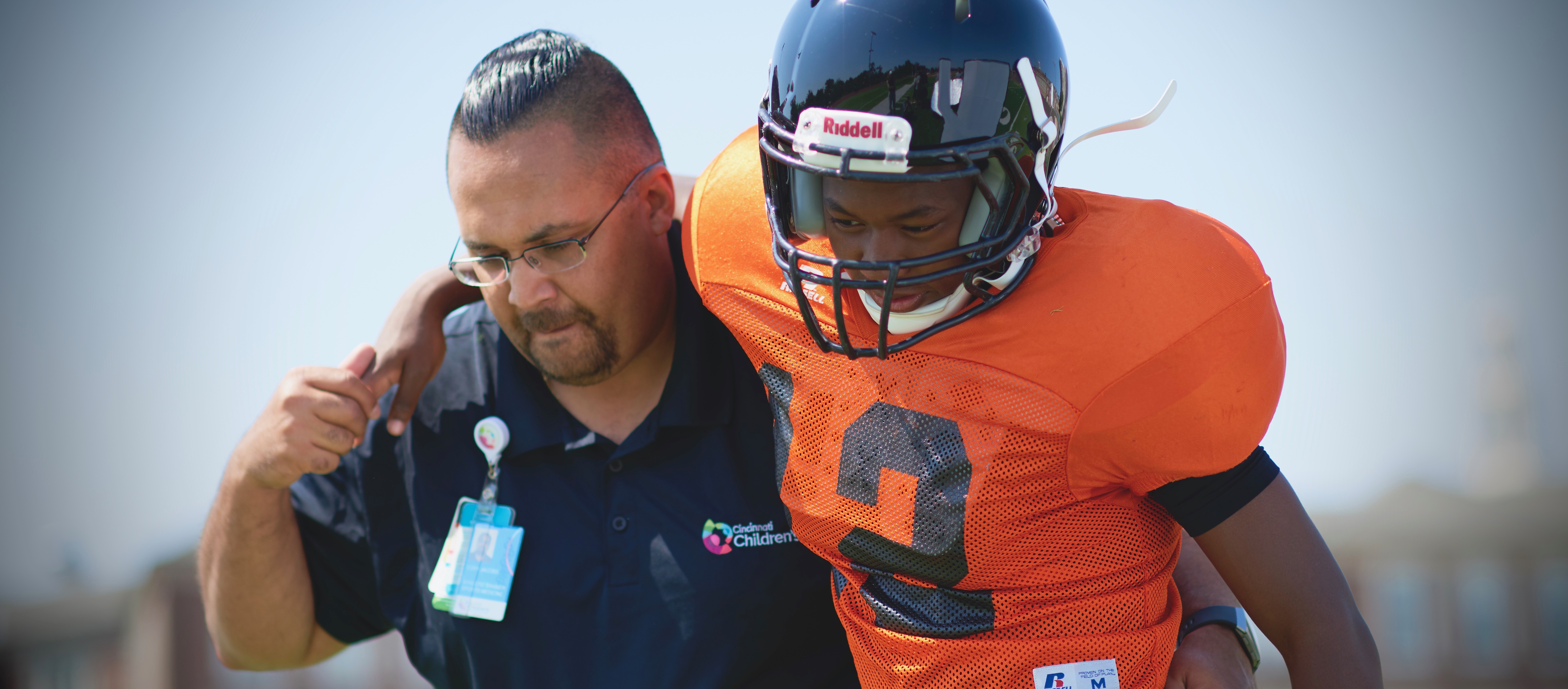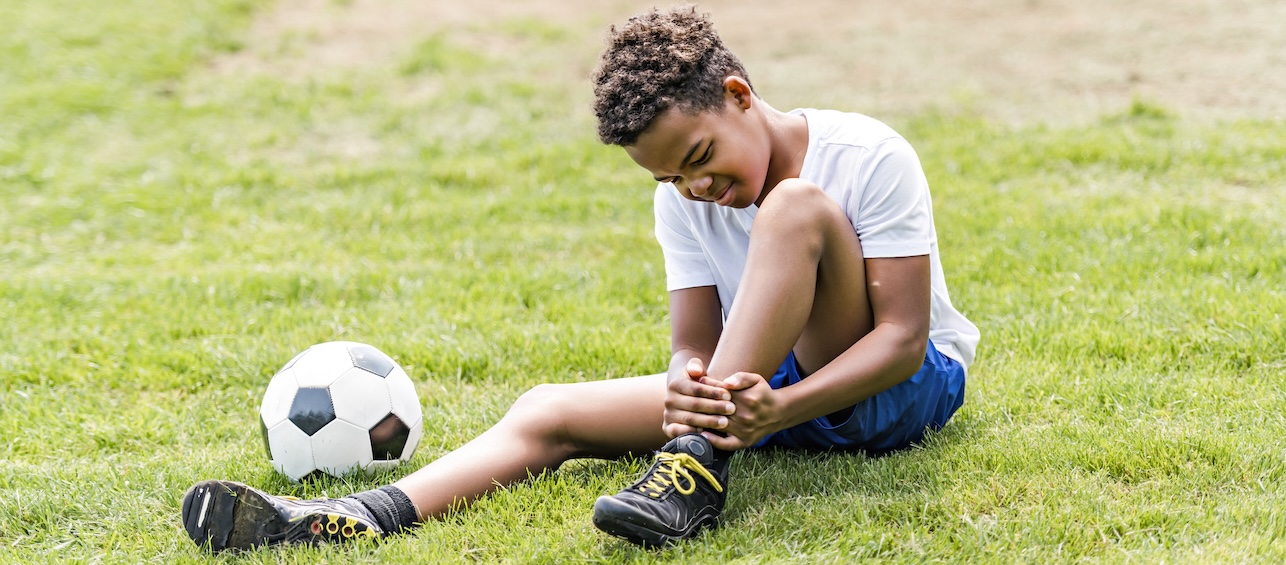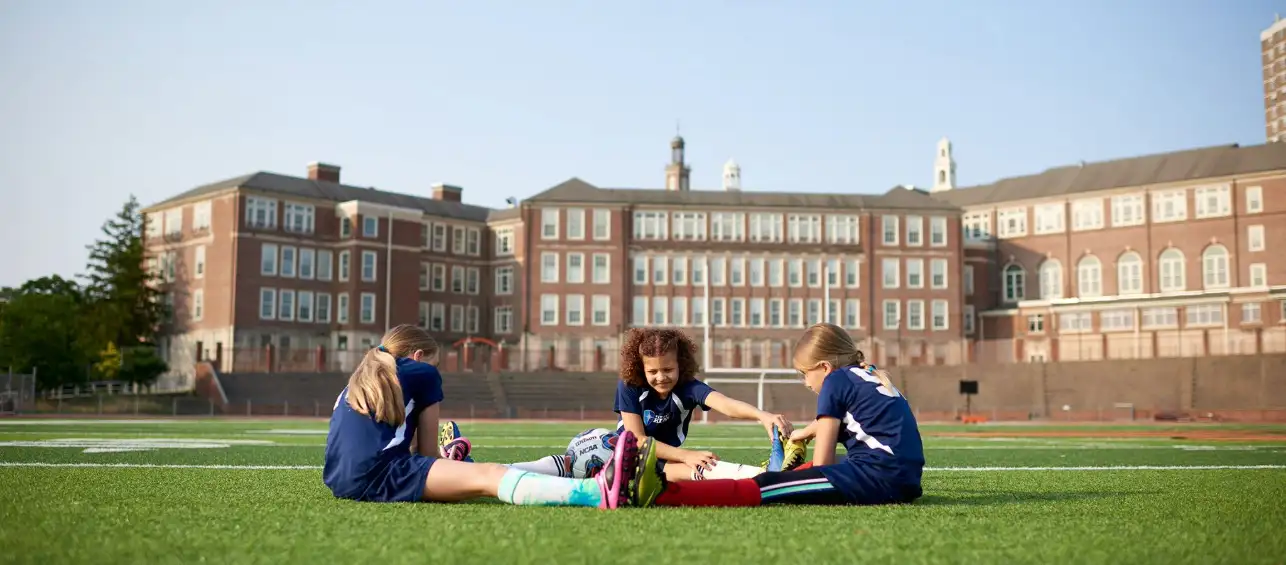Before kids head outside in crisp fall weather for sports like football, soccer and cross country, they get ready for the season in the heat of the summer. With heat indices regularly reaching triple digits in some parts of the country, it’s important to make sure your child is ready for the toll the heat takes on their body.
The three most important things to remember for summer practices are proper hydration, proper nutrition and plenty of sleep.
You can do a lot at home to make sure your child is ready for practices in the heat of the summer. Here’s what you need to know:
Hydrate!
Hydration is necessary for the body to be able to regulate its temperature. If a child doesn’t have enough fluids on-board when they start practice, they are more likely to experience heat illness and even heat stroke. Here are some guidelines for what and how much young athletes should be drinking:
Pre-activity – Kids should drink about 16 oz. of water 30-60 minutes prior to any physical activity. If a child is prone to cramping, you can give them a mixture of water and a sports drink that also has electrolytes. But in most cases, we recommend water.
During activity – Kids should drink 4 to 8 oz. of fluids every 15-20 minutes. While it can be tough for coaches to work in breaks, kids should also be taking a break every 20 minutes. Importantly, if they ask for water, they should be allowed to get it.
Watch for signs of dehydration like muscle cramps, fatigue, loss of coordination and decreased energy.
If the practice is just an hour, we recommend drinking just water. If the practice is longer than an hour, it can be beneficial to mix in sports drinks with electrolytes that can help replenish the nutrients the body loses through sweating.
After activity – Kids should keep drinking water after practice too. In a perfect world, you would track the weight of a child before and after practice to see how much fluid they lost. For every pound lost during practice, we recommend replenishing the body with 20 oz. of fluid. Because that is not always possible, I recommend tracking a child’s urine output and checking the color to determine their level of hydration.
Drinks to avoid
Caffeinated Beverages
- Although it may not have a strong effect on adults, caffeine will make kids dehydrated faster.
Energy Drinks
- Along with high amounts of sugar, these drinks can increase the heart rate of a child who is already pushing their body to the limit. In the worst case scenario, they can lead to a change in the heart rhythm, cause a heart attack and even death. Also, some energy drinks contain creatine which can cause severe dehydration if a child is not drinking enough other healthy fluids, like water.
Juice
- Juices are high in sugar and can actually draw water out from parts of the body, which is not the best way to hydrate muscles.
Proper Nutrition
Nutrition is just as important as hydration. If your child doesn’t have the fuel they need to sustain the level of energy necessary to practice, their body will eventually start to shut down. There are even some foods that can be consumed as a pre-activity snack that contain water like strawberries, cantaloupe and watermelon. Read these tips for simple ways to think about nutrition.
Get Enough Sleep
As a whole, teens don’t get enough sleep. The deficit starts in early adolescence and typically gets worse each year through high school. In fact, about 75-80% of seniors are getting less than eight hours of sleep on school nights. The recommended amount for teenagers is 8-10 hours a night. If your teen is one who doesn’t get enough sleep, we recommend you consider these tips to help make some simple sleep changes.
State Restrictions on Practice
To further protect our athletes, schools, sports organizations and even states have made changes in the past several years to help ensure their safety during summer practices. Here’s what some of our Cincinnati Children’s athletic trainers have shared with us.
Many schools have moved away from two-a-day summer practices that were popular years ago. Coaches are learning that this type of practice can lead to more injuries and teams are not getting as much out of them as they previously thought they did.
Some states have implemented new rules for football players that require ramp-up time and restrictions related to helmets and pads. In some states, like Ohio, there is a five-day period at the start of the season where players can’t participate in any contact drills.
Many states also have temperature restrictions that coaches must abide by during the hot summer months. In Kentucky for example, if the heat index gets to 105 degrees, teams are not allowed to have outdoor practices. Do your research and know the rules in your area.
If your child’s coaches are not calling water breaks every 20 minutes or are not following state rules and guidelines, say something! You can do your part in preparing your child and his or her body for the heat, but you have to be able to rely on coaches to do their part too.
Athletic trainers are part of many programs, especially at the high school level. They do their best to help keep kids stay safe in the summer, but they can’t be everywhere. Make sure your athlete asks for breaks and water.
As always, make sure your child has a pre-participation physical 6-8 weeks before practice for the season starts, and make sure you’re regularly watching closely for signs of dehydration and heat illness.
We know that the heat can seem overwhelming, but if kids stay properly hydrated and are paying attention to nutrition and sleep, it is safe to practice in the heat.
Our team of sports medicine specialists is here to help any time your athlete has an injury or health concerns. Call 513-803-HURT to schedule an appointment.
Read Next: Protecting the Brain in Sport: Research Shows Promise






